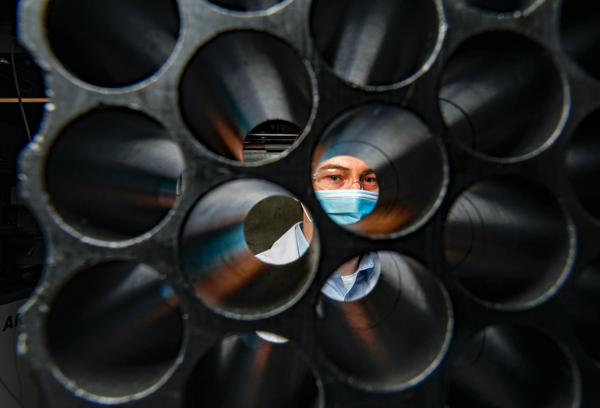For safer batteries everywhere

Anyone who has set up a chain of dominos is familiar with the effect they are famous for. A wobble in one tile can take out your entire system.
Lithium-ion batteries, made of multiple connected cells, have a similar problem. If just one has an internal short circuit, the other cells connected in parallel around it will suffer the same fate. The cascade can generate substantial heat and lead to battery failure—sometimes even fire.
Solving this problem is crucial because lithium-ion batteries are everywhere, powering technologies from smartphones to electric cars. They also are a central element of plans to scale up renewable energy.
UIC chemical engineering doctoral student Samuel Plunkett and faculty member Said Al-Hallaj developed a technique to mitigate this safety risk. Plunkett identified a way to isolate catastrophic battery cell failure with proper mechanical fusing, a strategy that can prevent runaway thermal propagation or fire.
The research was done in collaboration with the National Renewable Energy Laboratory, which is part of the U.S. Department of Energy. Plunkett and his colleagues conducted the testing validation of his idea in Professor Reza Shahbazian-Yassar’s lab at UIC.
What’s next for this breakthrough? Ideally, it’s coming to a battery near you. Plunkett and Al-Hallaj are the research and development director and co-founder, respectively, of AllCell, a Chicago-based battery company. AllCell has filed patent applications based on Plunkett’s work and established a partnership with Shahbazian-Yassar to improve the performance and safety of lithium-ion battery systems.